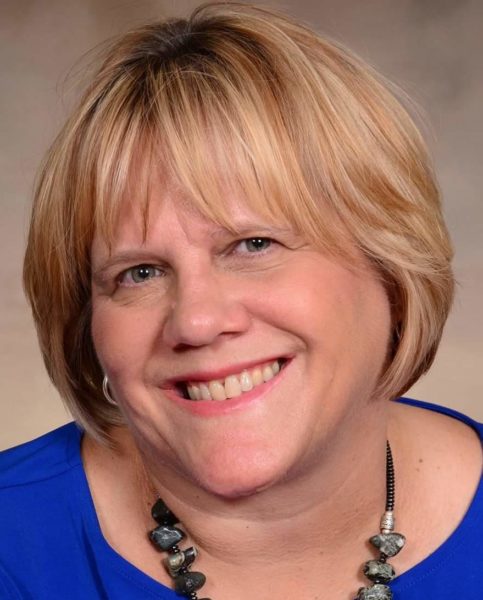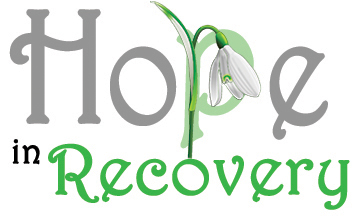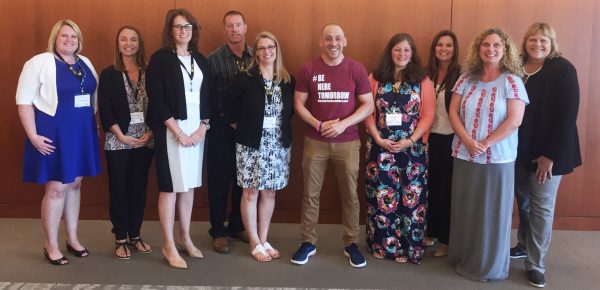
There’s a tendency to hide from mental illness and to hide those suffering from it as well. Gamble is different. Not only has she written a book about her journey, Bipolar Disorder, My Biggest Competitor: An Olympian’s Journey with Mental Illness, but she’s also quite forthcoming about her experiences, even as she continues to navigate them.
 Like most communities, Wheeling has a need for better mental health care. Nationally, one in five people struggles with mental illness. That statistic applies to adults as well as young people. The key is for both professionals and the general public to be more informed about it.
Like most communities, Wheeling has a need for better mental health care. Nationally, one in five people struggles with mental illness. That statistic applies to adults as well as young people. The key is for both professionals and the general public to be more informed about it.
To that end, on June 6 and 7, NAMI, in partnership with West Liberty University, will present its second annual two-day conference, Shedding Light on Mental Health at the WLU Highlands Center.
“The whole intent is to provide information to professionals as well as anyone in the general population about issues around mental health,” Gamble said. “And the whole idea is that we have this sort of public health crisis around mental illness. And we’re not talking enough about it. And you know, we know that everybody has mental health, but not everybody has mental illness.”
THE MENTAL ILLNESS TABOO
The consequences of mental illness can be as dire as homelessness, joblessness and incarceration. Gamble ties the problem to the opioid epidemic, explaining that those who start out with a mental health condition may self-medicate. Additionally, physical illness tends to make mental illness worse. A patient who has a heart attack or stroke, for example, may face depression afterward. It’s easy to see how mental health can quickly decline and the role that opioids may play in that downward spiral. The further down a patient spirals, the harder it can be to get help.
“We have to take away the whole idea of the taboo topic, and we must have conversations about this,” Gamble said. “The level that we are with this crisis — it’s astounding.” She refers to “deaths of despair.” These include alcohol-related deaths — 80,000 per year — and suicides — 47,000 annually. Drug overdoses total 74,000 per year.
“Over 150-some thousand people die by deaths of despair [annually],” Gamble said. “And for the most part, these are all preventable diseases. So the idea is to educate so that people will know how to help other people and will know how to get help themselves.
 HEAVY CONSEQUENCES
HEAVY CONSEQUENCES
The Ohio Valley is hardly unique in this crisis. Every community across the country finds itself facing the same problems. This is due to lack of both mental health services and access to care. With no support or help, patients may find themselves in jail for lack of a better alternative. We’re criminalizing mental illness, Gamble said, citing the Substance Abuse and Mental Health Services Administration (SAMHSA), which reports that 2.1 million people with mental illness and substance abuse disorder are booked each year into jails and prisons. Obviously, this isn’t where they belong, but why is it happening?
Gamble explains that there are several reasons why the mental health system is failing. Access to care is a big one. Fifty percent of mental illnesses develop by the age of 14; 75 percent develop by age 24. In those age groups, it’s imperative that parents get their children help as soon as possible. Access to care can mean the difference between a positive outcome and tragedy.
Another issue is that insurance companies are cutting back on the number of days people can be hospitalized. Often, four or five days simply aren’t enough, and people are released before they are stable. Still, another problem is that people are being warehoused in emergency rooms. Perhaps they arrive with an EMT at a hospital that doesn’t have a psychiatric facility. The hospital may keep them in the ER for several days for lack of any better options only to release them in much the same condition. Even worse, when beds are full, a patient cannot receive any care at all. They’re simply turned away, and this can lead to incarceration.
Simply put, the system is broken. Hence the need for public awareness and discussion.
CONFERENCE LINEUP
The two-day conference will be led by a host of experienced and knowledgeable presenters. The days begin with keynote speakers, after which attendees can pick one of several breakout sessions in a smaller group.
“The conference spans Thursday, June 6, to Friday, June 7,” Gamble said. “Registration starts at eight. We start off on Thursday with a keynote speaker at 8:30 a.m. He’s from Columbus, Ohio. His name is Gabe Howard, and he is a mental health advocate. He lives with bipolar disorder. He’s nationally known. And then we go into breakout sessions, we have lunch, and then we have another national speaker. It should be really interesting. Then we have some more breakout sessions, and then we have a fitness happy hour on Thursday from 4:45- 5:45 p.m.” Gamble said that the group will be doing yoga.
On Friday, the lineup is equally impressive. The morning’s keynote speaker, Taryn Aiken-Hiatt, is a suicide loss survivor and suicide attempt survivor. Local resources from Prevent Suicide WV will follow her presentation.
Friday’s lunchtime national speaker, Dr. Irene Hurford, comes from the University of Pennsylvania. She’ll be talking about first episode psychosis programs like Youth Services System’s Quiet Minds here in Wheeling. The first episode psychosis program is geared toward early intervention, helping a patient get treatment as soon as possible after the first episode and to support them with wraparound services as they learn how to manage their condition. Two more breakout sessions follow in the afternoon, covering topics like helping children with loss, the biology of stress and ADHD.

LEADERSHIP AND SUPPORT
Gamble said that last year, the first for the conference, was a phenomenal and unique experience.
“I think that we’re the only folks who are doing something that’s focused on mental health and mental illness in the state,” Gamble said. “It’s cutting edge. We had a lot of great feedback.” A wide variety of professionals attended last year’s event, including police officers, teachers, schoolteachers, and many social workers and counselors. The general public showed up, too.
Gamble will be there representing NAMI, and she’s always available to help anyone who might be in crisis. It’s what she does for a living. She helps family members navigate the mental health system and come up with a plan for getting a loved one treated. She understands how scary it can be, as she’s been there herself as both a patient and a family member of a patient. NAMI, as well as other vendors, will provide information on things like family support groups and mental health resources. She said that sometimes the hardest part is asking for help and hopes to help those in crisis find it.
The problems with mental health care can seem insurmountable. However, Amy Gamble believes that change must start with awareness and openness, and she’s initiating the conversation. Please join in the dialog.
You can register online at namiwheeling.org. Regular two-day registration is $120; one-day registration is $65. NAMI members receive a discount. For questions, email Julie.namigreaterwheeling@gmail.com or call 304-238-8277. For additional information, visit namiwheeling.org.
• Laura Jackson Roberts is a freelance writer in Wheeling, W.Va. She holds an MFA in Creative Writing from Chatham University and writes about nature and the environment. Her work has recently appeared in Brain, Child Magazine, Vandaleer, Animal, Matador Network, Defenestration, The Higgs Weldon and the Erma Bombeck humor site. Laura is the Northern Panhandle representative for West Virginia Writers, a blog editor for Literary Mama Magazine and a member of Ohio Valley Writers. She recently finished her first book of humor. Laura lives in Wheeling with her husband and their sons. Visit her online at www.laurajacksonroberts.com.


